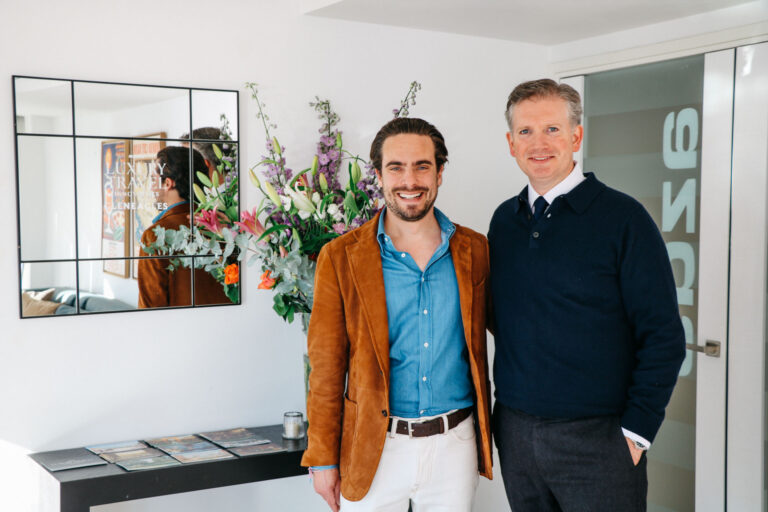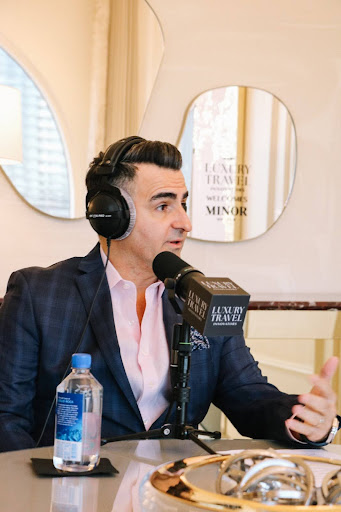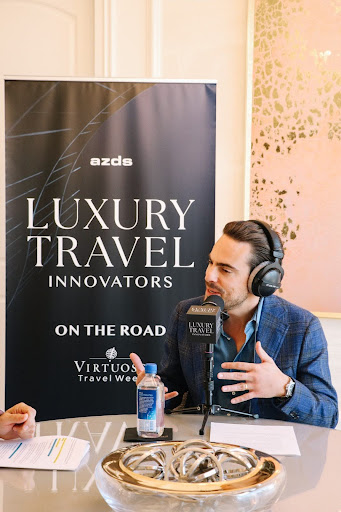
Podcast
I recently had the pleasure of sitting down with Ian Di Tullio, Global Chief Commercial Officer at Minor Hotels to discuss the rapid growth of the brand, a few jaw-dropping experiences available at properties in the portfolio and how he sees technology innovation impacting the travel industry moving forward.
Minor Hotels as a brand is, objectively, not so minor anymore. Founded by Bill Heineke more than 50 years ago with a single hotel in Pattaya, Thailand, it has since grown into a global brand. On the hotel side specifically, Minor has expanded to almost 600 properties, with projections to reach about 1,000 by 2030. Currently, there are 12 brands, most recognizable being Anantara Hotels & Resorts, Elewana Collection, which is known for luxury safaris throughout Africa, NH Collection out of Europe, and Oaks located mostly throughout Australia (Learn more about the breadth of luxury offerings out of Australia in Episode 15 and Episode 16). Ian describes the rapid growth of Minor akin to the little engine that could—that seems to have turned into a high-speed train as the years have progressed.
The portfolio consists of a mix of owned and operated properties, with about 70% of assets falling in the owned category. The goal is to have a nice asset rotation strategy, which provides the benefits of an asset while retaining ownership. Ian sees this as cultivating a culture of accountability and invested performance, with a palpable team mentality and genuine rapport with the hoteliers.
Ian began his career in finance, eventually moving into database marketing, building up some of the biggest loyalty programs in North America with a company called Alliance Data Systems and Air Miles Reward Program in Canada. This led him to the airline space, spending about 10 years between Air Canada and Qatar Airways, learning about travel and falling in love with the industry. He spent the next five years in Paris with Accor furthering his hospitality repertoire then eventually moving to Minor Hotels with the goal of taking the company to the next level. Part of that includes having an equity stake in a loyalty program called Global Hotel Alliance, which helps independent hotel brands stay independent but compete globally by sharing a loyalty platform, customer network and marketing power.
The guest profile spans the globe, with the largest contributing markets out of the United Kingdom, The United States, Southeast Asia and the Middle East. Dubai’s market is on a strong growth trajectory, particularly at the luxury level, and there is a huge development pipeline in Saudi Arabia. China and India also have markets moving at a ridiculously fast pace, partially due to each country’s commitment to growing the middle class, which in turn leads to an increase in demand.
One brand Ian highlighted was Mekong Kingdoms, a luxury river cruise concept that represents Minor’s ambitions about becoming the “Death Star of cruises”. Based in Laos on the famed Mekong River between Luang Prabang and Vientiane, guests can experience a river tour adventure filled with locally sourced cuisine aboard a beautifully designed boat. Considered a five-star hotel of the seas, oftentimes groups book the entire boat for multi-generational getaways, filled with must-see stops like the Pak Ou caves and Kuang Si waterfalls.


Recently, a handful of Minor Hotel owned properties—including Anantara Mai Khao Phuket Villas, Anantara Bophut Koh Samui Resort and Anantara Lawana Koh Samui Resort—were locations for season three of HBO’s The White Lotus, alongside the primary filming location Four Seasons Resort Koh Samui, owned by Bill Heinecke. Many viewers are now visiting the resorts to become immersed in Thai culture for the “White Lotus” experience, with activities like the White Lotus Afternoon Tea available amongst the lily pads as seen in the spa sequences of the show. Bookings have increased almost 3x since the announcement of the show’s filming locations, but more impactfully, Thailand as a country has seen a massive boost in the luxury travel space.
Wellness has always been integral to Minor Hotels, particularly in their initial brands. Anantara Spa is known worldwide for Thai traditional care and spa treatments. Anantara Layan Phuket resort has become recognized globally for their Layan Life holistic wellness retreat, set in what feels like a giant, floating lily pad in a restorative tropical landscape. Experience-based travel has continued to reign supreme in the industry, and in Northern Thailand sits Anantara Golden Triangle Elephant Camp & Resort. There, guests can partake in adventures through ancient ruins and also care for the 20 rescued elephants in their wild sanctuary, all set against a 160-acre bamboo forest. On the outskirts of Abu Dhabi in the world’s largest sand desert sits Qasr al Sarab Resort, which offers guests the opportunity to ride camels into the middle of the desert for a gourmet, sunset barbeque. Zero light pollution enhances the night sky to its purest form, with unreal stargazing. To put it simply, Minor Hotels looks for the most unique and remote destinations to create once-in-a-lifetime experiences for their guests.
Keeping travel advisors engaged and up-to-date on the latest offerings of Minor is key to expansion. One way the company does this is by connecting on-property general managers with advisors, as they are well-equipped to illustrate their passion for their properties and then trickle that down to potential future guests. Ian’s team is redesigning their app and digital footprint to further personalize that funnel.
“As a person who experiences [a destination] there’s a person who’s been there before and has committed to the promise of the hotel. And we’re delivering that promise.”
Regarding using AI operationally as well as from a commercial perspective, Ian remarked on the fact that it’s been a part of business for decades, with different evolving forms and technologies. AI version zero was using quantitative models to do predictive forecasting in the early 2000s, with recommendations based on statistical models. Now, exchanges with guests can be even more personalized with relevant, contextual information. Minor is also developing partnerships with systems that enhance revenue management, with the goal of automating entry level tasks to re-allocate human talent to higher value-adding needs.
Ian defines success at Minor Hotels as growing with purpose and a constant commitment to delivering memorable moments for the guests in a sustainable way, which unlocks community connectivity across the board. We wrapped up our conversation with LTI’s signature rapid fire questions. For personal travel, Ian hopes to embark on a wildlife photography retreat in Zimbabwe, which touches on his desire for others to discover the world and open their minds to what really matters. Looking back at travel in the past, he misses the romanticism and thinks it’s an element that should be prioritized amidst commoditization, bringing the magic back for all travelers. As a shameless Star Trek fan, Ian thinks teleportation is something the industry should innovate for the future. While that may not be possible any time soon, he believes it could solve for making logistical movement much more manageable for people and families as they head out on their vacations.
Thank you, Ian, for joining me on this episode of Luxury Travel Innovators, available to listen to and watch on Spotify, Apple Podcasts and Youtube.